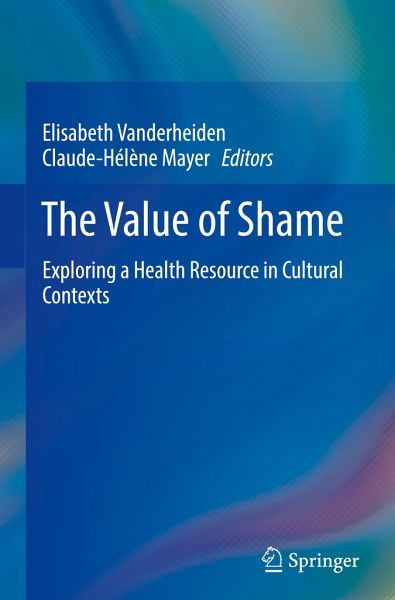
The Value of Shame
Exploring a Health Resource in Cultural Contexts
Herausgegeben: Vanderheiden, Elisabeth; Mayer, Claude-Hélène

PAYBACK Punkte
49 °P sammeln!
This volume combines empirical research-based and theoretical perspectives on shame in cultural contexts and from socio-culturally different perspectives, providing new insights and a more comprehensive cultural base for contemporary research and practice in the context of shame. It examines shame from a positive psychology perspective, from the angle of defining the concept as a psychological and cultural construct, and with regard to practical perspectives on shame across cultures. The volume provides sound foundations for researchers and practitioners to develop new models, therapies and co...
This volume combines empirical research-based and theoretical perspectives on shame in cultural contexts and from socio-culturally different perspectives, providing new insights and a more comprehensive cultural base for contemporary research and practice in the context of shame. It examines shame from a positive psychology perspective, from the angle of defining the concept as a psychological and cultural construct, and with regard to practical perspectives on shame across cultures. The volume provides sound foundations for researchers and practitioners to develop new models, therapies and counseling practices to redefine and re-frame shame in a way that leads to strength, resilience and empowerment of the individual.












